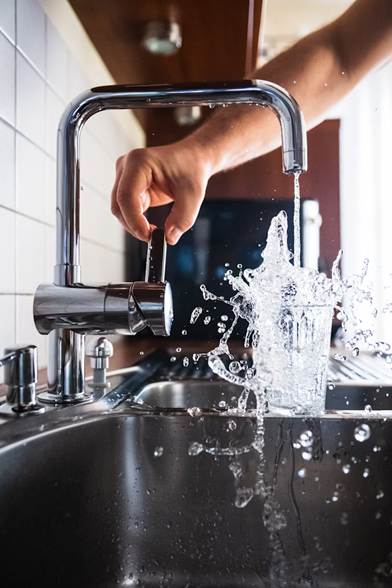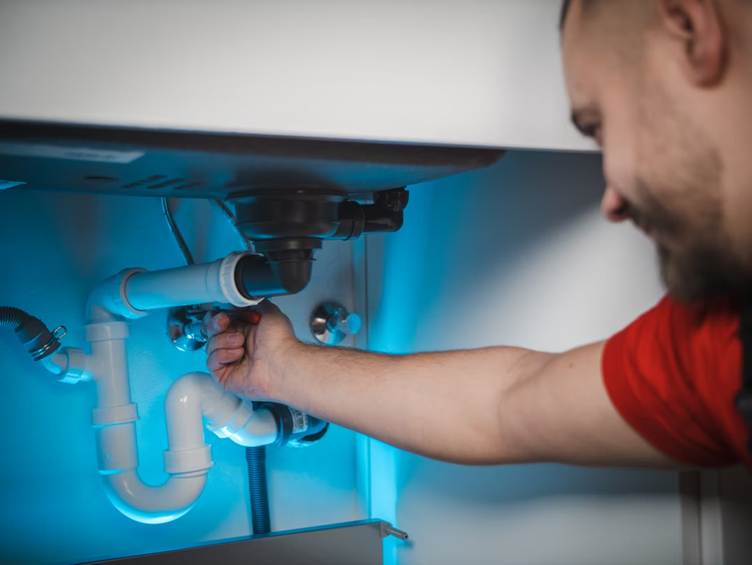A home’s plumbing system plays a quiet but critical role in daily life. When it’s working smoothly, clean water flows, drains clear, and household tasks run without interruption. But when something goes wrong, the inconvenience can be immediate and costly. Regular upkeep helps prevent unexpected breakdowns, protects the structure of your home, and can even keep utility bills in check. Rather than waiting for a leak to make itself known, it makes sense to pay attention to the health of your plumbing year-round.

Seek Professional Help When Needed
There are many small maintenance tasks homeowners can handle themselves, but some issues go beyond what basic tools and DIY videos can fix. In these cases, calling a professional can save time, prevent damage, and get things back on track before the problem escalates. Whether you’re dealing with recurring clogs, water pressure fluctuations, or unexplained damp spots, a trained plumber brings both experience and diagnostic tools to identify the root of the problem. Choosing a reliable team such as the one at www.landrymechanical.com can make all the difference, offering expert advice and long-term solutions. This also provides you with peace of mind that the work is done properly the first time.
Avoid Using Harsh Chemicals for Clogs
When water starts draining slowly, it can be tempting to reach for a bottle of chemical drain cleaner. These products might provide a short-term fix, but over time, they can corrode pipes, damage seals, and harm the environment. Repeated use can make plumbing problems worse, not better. A safer and more sustainable approach is to use a drain snake or plunger, both of which physically remove blockages without damaging the inside of the pipes. For recurring problems, consider having the pipes inspected professionally to identify whether a buildup, tree root intrusion, or structural issue is at play.
Know What Not to Flush or Pour Down the Drain
What goes into your drains has a lasting impact on the plumbing system. Toilets should only handle human waste and toilet paper. Flushing wipes (even those labeled as flushable), paper towels, or feminine hygiene products often lead to blockages. In the kitchen, avoid pouring fats, oils, or grease down the sink. These substances cool and solidify in the pipes, gradually causing narrowing and eventually full clogs. Over time, this can lead to backups that affect multiple parts of the home. Setting up a small compost bin or grease collection jar near the sink helps avoid these issues and keeps the system running smoothly.
Protect Pipes During Cold Weather
Cold temperatures bring a unique set of challenges to plumbing systems. When water freezes inside pipes, it expands, creating pressure that can lead to bursts and serious flooding. This damage is not only disruptive but can also result in costly repairs. Insulating exposed pipes, especially in basements, attics, and exterior walls, reduces this risk. Leaving cabinet doors open under sinks during extreme cold allows warm indoor air to circulate the plumbing. Letting a trickle of water run from faucets on freezing nights can also keep water moving, making it less likely to freeze. These simple habits can spare you from a much larger issue later.
Watch for Early Warning Signs

Leaks and pipe problems rarely appear out of nowhere. Often, the plumbing system gives hints before something fails. Discolored water, strange smells from drains, fluctuating water pressure, or sounds like banging and gurgling can all signal developing issues. Paying attention to these signs gives you a chance to act early, before a minor inconvenience becomes a larger and more expensive repair. Regularly inspecting under sinks and around fixtures helps catch slow leaks, while monitoring your water bill can alert you to hidden leaks behind walls or underground.
Maintain Your Water Heater
Water heaters are one of the most used but often neglected components of a home’s plumbing. Sediment builds up in the tank over time, reducing efficiency and shortening the unit’s lifespan. Flushing the tank once a year helps remove this sediment and ensures the heater runs more efficiently. Keep an eye on the temperature setting, which should ideally stay around 120 degrees Fahrenheit. If it’s too high, it can scald and waste energy; if it’s too low, it might not kill bacteria effectively. Checking the pressure relief valve and looking for signs of rust or corrosion also helps avoid unexpected failure. If your water heater is over a decade old and showing signs of age, it might be time to discuss replacement options with a qualified technician.
Plumbing upkeep doesn’t require deep technical knowledge, but it does call for consistency, awareness, and the willingness to address small issues before they grow. Paying attention to what goes into your drains, protecting pipes from the cold, watching for warning signs, and seeking expert help when problems arise all contribute to a well-functioning system. With a little regular attention and professional support when needed, your home's plumbing can remain in excellent shape year after year.









